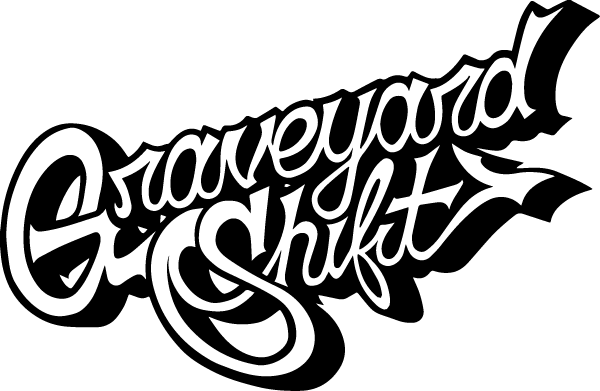Copenhagen Fashion Week Thrives Despite Global Luxury Market Downturn
As the global luxury market experiences an unprecedented slowdown, one would expect a corresponding dip in fashion weeks around the world. Yet, Copenhagen Fashion Week continues to defy expectations. This Danish fashion festival has not only survived but seemingly thrived. Let's delve into the factors catalyzing this surprising resilience.
The Global Luxury Market Conundrum
The global luxury market, characterized by renowned brands like Louis Vuitton and Gucci, has felt the pinch of economic uncertainties, changing consumer behavior, and a rising demand for transparency and sustainability. Costs are soaring, and even the traditionally untouchable luxury goods are seeing a dip in demand.
Key Factors Affecting the Global Luxury Market
- Economic Uncertainty: Issues like inflation and fluctuating currencies have impacted disposable income.
- Change in Consumer Behavior: Today's consumers are more interested in sustainability and ethical shopping.
- Increased Demand for Transparency: Shoppers now seek transparency in the production processes and labor practices of brands.
Why Copenhagen Fashion Week Is Flourishing
Despite these challenging times for the luxury market, Copenhagen Fashion Week has gone from strength to strength. What makes this event an outlier? This success can be broadly attributed to its sustainability focus, revolutionary innovations, and local support.
Commitment to Sustainability
One of the biggest draws of Copenhagen Fashion Week is its commitment to sustainability. The organizers have taken significant steps to ensure the event is as eco-friendly as possible.
- Green Initiatives: The event has set ambitious targets, including reducing carbon footprints and eliminating single-use plastics.
- Sustainable Brands: Designers and brands showcasing at Copenhagen Fashion Week often feature sustainable practices like the use of recycled materials.
This focus aligns perfectly with the current global trend toward sustainable and ethical consumerism, drawing a specific, engaged audience that values these efforts.
Innovation as a Core Value
The spirit of innovation runs deep in Copenhagen Fashion Week, from how collections are presented to the technology used to make the events accessible.
- Virtual Experiences: Leveraging VR technology, fashion week has integrated digital experiences allowing a larger, global audience to partake in the event.
- Unique Runway Formats: Hybrid shows combining physical and digital aspects offer a fresher perspective compared to traditional runway formats.
Local Support and Talent
Denmark has a rich history of design and craftsmanship, and Copenhagen is the nexus of this tradition. The local talent pool is strong, and there's a definite sense of community that bolsters the success of the event.
- An array of local designers showcasing homegrown talent.
- Community initiatives and collaborations that keep the spirit of fashion vibrant and inclusive.
The Role of Technology in Copenhagen Fashion Week
Technological advancements have played a pivotal role in Copenhagen Fashion Week's success, especially during the pandemic.
Virtual Reality (VR) and Augmented Reality (AR)
Virtual reality (VR) and augmented reality (AR) have transformed the way collections are presented:
- Immersive Experiences: These technologies provide an immersive experience, allowing the audience to feel as if they are attending the show in-person.
- Broader Reach: This digital pivot enables those who couldn’t travel to Denmark to experience Copenhagen Fashion Week from the comfort of their homes.
This digital shift also speaks volumes about the event's adaptability and its dedication to keeping the audience engaged, regardless of global challenges.
Sustainability and Ethics: More Than Just Buzzwords
While many fashion events and brands may tout sustainability and ethics, Copenhagen Fashion Week takes these principles seriously.
Sustainability Standards and Codes of Conduct
The organizers of Copenhagen Fashion Week have introduced sustainability standards that participating brands must adhere to:
- Eco-Friendly Materials: Encouraging the use of eco-friendly and recycled materials.
- Ethical Labor Practices: Ensuring fair labor practices throughout the supply chain.
Focus on Long Term Impact
The event isn't just about making a splash today; it's about influencing the industry long term. The initiatives carried out reflect a conscious effort to drive permanent change towards more sustainable and ethical practices in fashion.
Conclusion
Copenhagen Fashion Week serves as a case study in resilience and adaptability within the fashion industry. By focusing on sustainability, embracing innovation, and leveraging technology, it has managed to thrive despite a downturn in the global luxury market. This approach not only caters to contemporary consumer values but also sets a new benchmark for fashion events globally. It's clear that in Copenhagen, the future of fashion is both bright and green.
As other fashion weeks and designers look to navigate the turbulent luxury market, they could do well to look at Copenhagen's example. Its success serves as an inspiring testament to the power of aligning with modern values and maintaining a forward-thinking approach.

